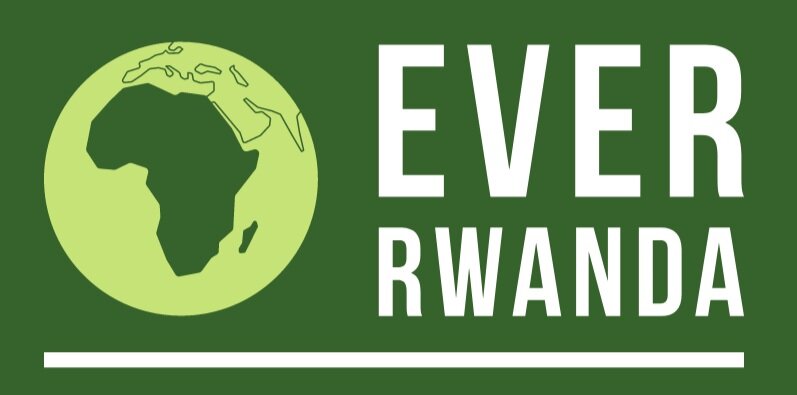An Interview of Aline Umutoni
Her Father’s Daughter: The daughter of a Hutu mother and a Tutsi father, Aline Umutoni survived the genocide as a five year old, after her beloved father was tragically murdered.
I was honored to speak with Aline Umutoni, a survivor of the Genocide Against the Tutsi in Rwanda, about her inspiring story of survival, resilience, and forgiveness. Ms. Umutoni was a five year old only child, living with her father in the town of Butare at the time of the Genocide Against the Tutsis in April of 1994. Her mother, a Hutu, had been tragically killed when she was an infant. After the genocide began, her beloved father, a Tutsi doctor, was murdered within her earshot, while she was hidden under a bed. She miraculously survived and eventually was reunited with relatives at a refugee camp in Uganda. Living with other relatives in another country, she endured years of abuse. Shockingly, she even learned that a relative on her mother’s side of the family was one of the men responsible for her father’s murder. Ms. Umutoni was not only able to overcome these traumatic events, but she was able to find forgiveness. She is the author of the powerful memoir, From Bondage to Freedom: How God Turned My Pain into a Purpose and My Mess into a Message.
In speaking with Ms. Umutoni, she shared how she was “never raised with the notion of tribes” and did not know that her mother was a Hutu and her father was a Tutsi. She was a beloved child, with her father teaching her how to ride a bike and singing to her every night. Shockingly, with the onset of the genocide, she went from being “that little girl to being called a cockroach.” She recalled how she questioned:
“Why all of a sudden is my name no longer Aline but . . . I’m now recognized as a ‘cockroach?’”
Ms. Umutoni expounded on the fact that forgiveness is difficult and painful, yet allowed her to find freedom. She shared: “I was the black sheep in that family because I was my father’s daughter. I was the Tutsi child with a Hutu mother. I’ve always had that stigmatization. . . . Maybe the fact that I’m different, maybe God wants me to use that to love on them, to forgive them. Is it easy? Absolutely not.”
Ms. Umutoni also shared her thoughts on the powerful moment when she went to the prison to see one of the men responsible for her father’s murder. Despite the fact that this man had no remorse, Ms. Umutomi chose to forgive him and the other men responsible for her father’s murder. She shared her views on forgiveness and her purpose: “I did not survive because I was the greatest runner or because I was the luckiest. . . [My survival] is not for me to carry bitterness or anger, [or] living a life that is not worth living for those that were killed. . . .The greatest gift I can give myself and my parents is to live a life free from anger, free from resentment, free from bitterness. . . ”
One of the things that I found most compelling about Ms. Umutoni’s story was her amazing capacity to forgive. She recounted how not only was her father murdered, but ninety eight percent of her family was murdered, including her grandparents. In her book, she wrote of her experience when as an adult, she returned to Rwanda. She was visiting her grandfather’s grave and was greeted by two men, who she later learned were the very men responsible for her grandfather’s death. They had been released by the gacaca courts. She wrote that even though she was angry at them, she decided to forgive them. (Umutoni 164-165). For her, one of the most important aspects in being able to forgive and heal completely, was knowing the truth of what had happened.
She discussed her thoughts on the gacaca court trial of two of the three murderers of her father. Ms. Umutoni recounted how: “Gacaca was a breakthrough” as she was able to learn some of the facts of his murder, when before she had only her memories of what she was able to overhear as a five year old hiding alone under a bed. Learning of the testimony in the gacaca proceedings allowed her to heal from her feelings of abandonment as: “I was still that little five year old kid under the bed wondering “Why did they have to take my dad away?’. . . So gacaca was a breakthrough. . . I understood that my dad didn’t abandon me . . He was taken and killed.”
Ms. Umutoni also discussed one of the most tragic aspects of her father’s murder. A respected doctor, he had friends in both the Tutsi and the Hutu tribes. As a leader in the community and as a result of his “conviction and confidence” in his relationships, he courageously refused offers to leave Rwanda when the genocide started. Shockingly, though, people that he trusted were the ones that betrayed him and killed him. Ms. Umutoni recalled how, “The people he thought would protect us, are the people that killed him.”
Finally, Ms. Umutoni revealed the overall message she wishes to share. She shared her view that, “Your pain is your greatest tool” and her powerful message that:
“We always have a choice - a choice to be victims of the pain or use pain to bring choice in life. Don’t waste your pain. Embrace yourself. Embrace your uniqueness.”
Ms. Umutoni, Thank you for your incredible courage, kindness, and willingness to share your story in order that not only will your truth be preserved, but your experiences may help others.

